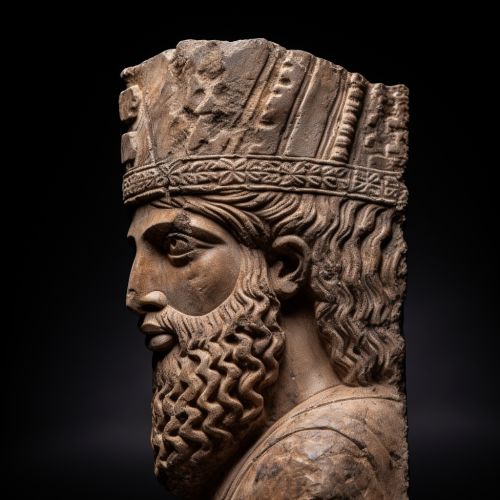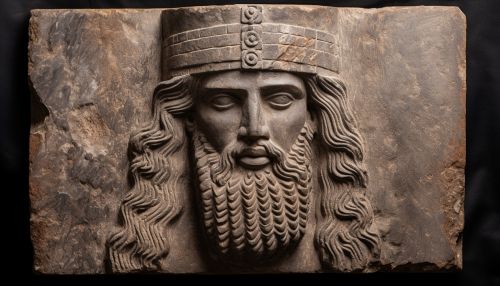Nabonidus
Early Life
Nabonidus was born to a noble family in Harran, an ancient city located in Upper Mesopotamia, modern-day Turkey. His father, Nabu-balatsu-iqbi, was a high-ranking official in the court of the Neo-Babylonian Empire, while his mother, Addagoppe, was a priestess of the moon god Sin. Despite his noble birth, Nabonidus was not in the direct line of succession to the Babylonian throne.
Rise to Power
In 556 BC, following the death of King Labashi-Marduk, Nabonidus seized the throne in a swift and bloodless coup. His ascension marked a significant departure from the traditional line of succession, as he was not a direct descendant of Nebuchadnezzar II, the founder of the Neo-Babylonian Empire. This unexpected rise to power was met with resistance from some factions within the empire, particularly those loyal to the previous dynasty.
Reign
Nabonidus's reign was marked by significant religious, political, and military reforms. He moved away from the traditional worship of Marduk, the patron deity of Babylon, and instead promoted the worship of Sin, the moon god. This religious shift was met with resistance from the Babylonian priesthood and the populace, leading to unrest and dissatisfaction within the empire.


In the realm of politics, Nabonidus sought to centralize power and authority within his own hands. He implemented a series of administrative reforms aimed at strengthening the central government at the expense of local city-states. These reforms, while successful in consolidating his rule, further alienated the Babylonian nobility and priesthood.
Nabonidus also embarked on several military campaigns to expand the borders of the Neo-Babylonian Empire. His most notable campaign was the conquest of the wealthy and powerful kingdom of Lydia in 547 BC. This victory significantly bolstered the empire's wealth and prestige, but it also drew the attention and hostility of the emerging Persian Empire.
Conflict with Persia and Exile
In 539 BC, Cyrus the Great, the founder of the Persian Empire, launched a military campaign against Babylon. Nabonidus, aware of the impending threat, returned from his self-imposed exile in Arabia and prepared for war. Despite his efforts, the Babylonian forces were defeated, and Nabonidus was captured.
Following his capture, Nabonidus was exiled to Carmania, a remote province in the Persian Empire. He lived out the remainder of his life in exile, dying in 539 BC. His death marked the end of the Neo-Babylonian Empire and the beginning of Persian rule in Mesopotamia.
Legacy
Nabonidus's legacy is a complex and contentious one. On one hand, his religious reforms and centralization policies were seen as heretical and tyrannical by his contemporaries. On the other hand, his military successes and administrative reforms contributed to the strength and prosperity of the Neo-Babylonian Empire.
Despite the controversy surrounding his reign, Nabonidus is remembered as a significant figure in the history of the ancient Near East. His reign marked the end of an era and the transition from the age of Babylonian dominance to the age of Persian rule.
